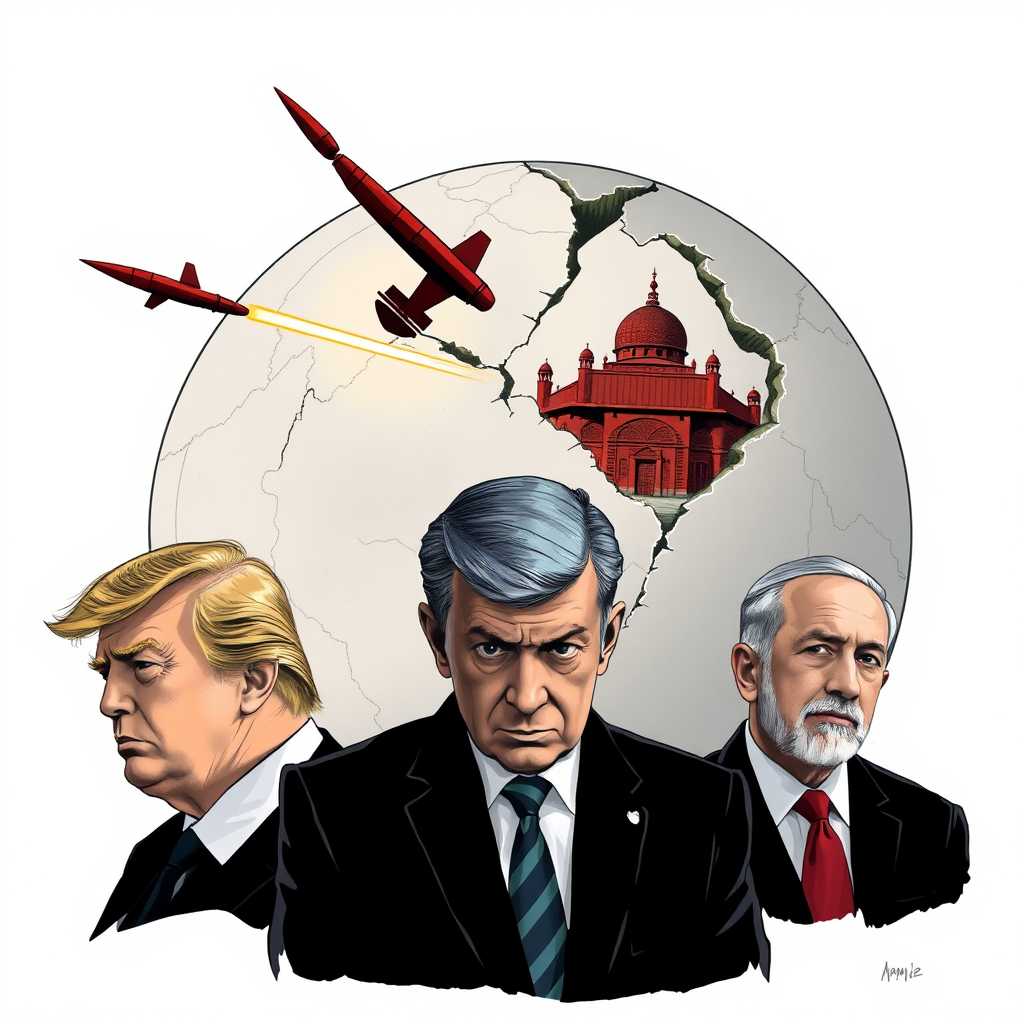Iran and Israel at War: Trump Issues Threat

Escalating tensions between Israel and Iran have spiraled into direct military exchange, marked by missile strikes and increasingly bellicose rhetoric from both sides. Overnight Saturday into Sunday, Iranian missiles targeted Israel, prompting a retaliatory response from Israel that included strikes on targets in Tehran linked to Iran’s nuclear program, specifically the Ministry of Defense headquarters and the SPND nuclear project facility. Israeli officials claim these locations were central to Iran’s efforts to develop nuclear weapons and served as a repository for sensitive nuclear archive materials.
Amidst this volatile situation, former U.S. President Donald Trump issued a stark warning via his social media platform, Truth Social. While distancing the U.S. from the initial Iranian attack, he cautioned Iran against any targeting of U.S. interests and threatened a forceful response, stating the U.S. would unleash its military “at levels never seen before” if attacked. Simultaneously, Trump reiterated his belief that a deal between Iran and Israel is possible, framing it as a path to de-escalation. He lamented the stalled nuclear negotiations with Iran during his presidency, blaming Iranian “hardliners” for failing to reach an agreement.
The exchange of attacks has effectively derailed planned nuclear talks set to take place in Oman, with Iranian officials deeming further discussions “meaningless.” Despite Trump’s expressed desire for a swift resolution, the prospects for renewed negotiations appear dim given the current hostilities. Israeli Prime Minister Benjamin Netanyahu has signaled a continued military offensive, stating Operation Rising Lion will continue “for as many days as it takes” to neutralize the perceived threat. He has even alluded to potential strikes within Tehran itself.
The conflict is already taking a devastating toll on civilians. Israeli residential areas were hit during the Iranian missile barrage, prompting widespread shelter alerts. Both countries have reported casualties: at least 13 Israelis, including three minors, have been killed, while Iranian authorities report at least 75 deaths. Israel’s Defense Minister, Yoav Gallant, has issued evacuation notices for residents near weapons production complexes in Tehran, accusing the Iranian regime of turning its capital into a hostage situation. Iranian President Masoud Pezeshkian warned of a “more severe” response should Israel continue its operations.
This rapid escalation is deeply concerning. While Israel asserts its actions are in self-defense, the potential for miscalculation and wider regional involvement is significant. The current trajectory suggests a dangerous spiral, and the absence of effective diplomatic intervention raises the specter of a prolonged and devastating conflict. The situation demands immediate and concerted efforts from the international community to de-escalate tensions and prevent further loss of life. The rhetoric from all sides is inflammatory, and a return to dialogue, however difficult, is the only viable path toward a sustainable resolution. The current situation underscores the fragility of regional stability and the urgent need for a comprehensive approach to address the underlying causes of conflict.